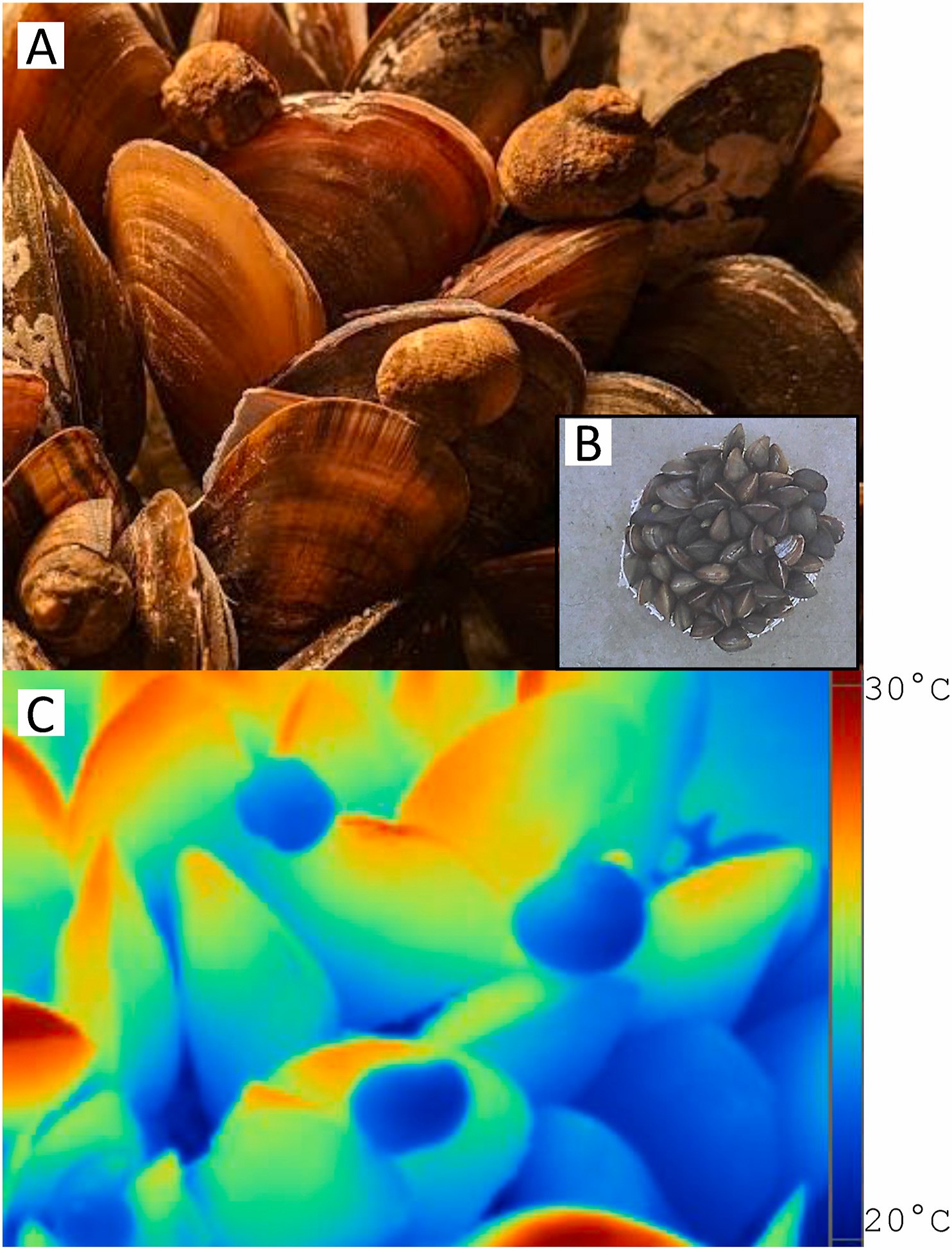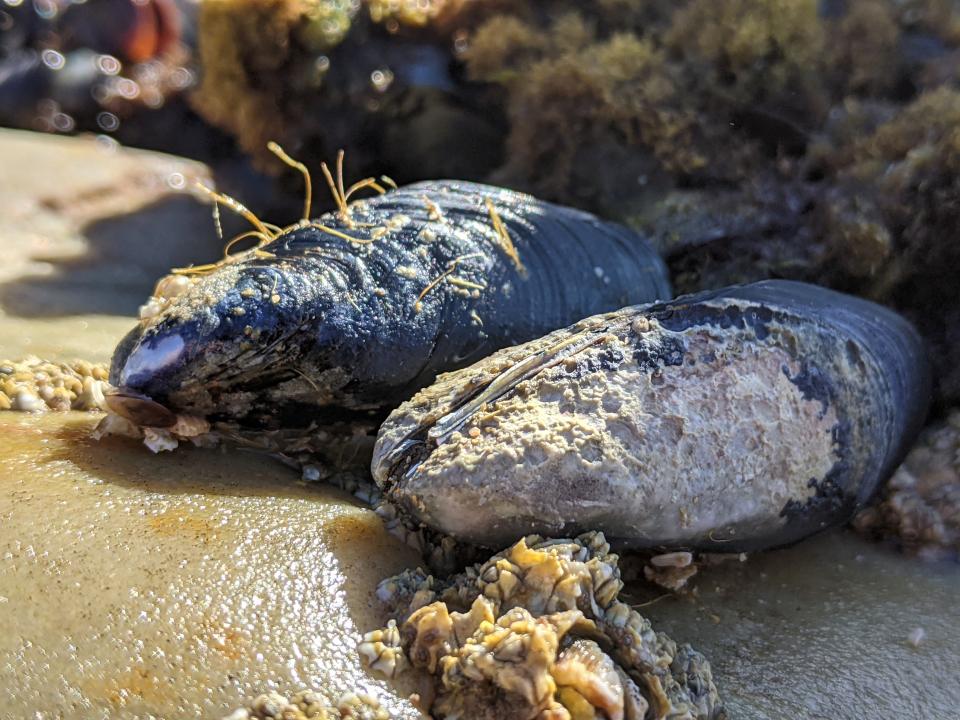Gerardo I. Zardi, Laurent Seuront, Christopher D. McQuaid, William Froneman, Katy R. Nicastro. Symbiont-induced phenotypic variation in an ecosystem engineer mediates thermal stress for the associated community. Journal of Thermal Biology. Volume 112, 2023, 103428. https://doi.org/10.1016/j.jtherbio.2022.103428
Microbial symbionts have strong potential to mediate responses to climate change. Such modulation may be particularly important in the case of hosts that modify the physical habitat structure. By transforming the habitats, ecosystem engineers alter resource availability and modulate environmental conditions which, in turn, indirectly shape the community associated with that habitat. Endolithic cyanobacteria are known to reduce the body temperatures of infested mussels and here, we assessed whether the thermal benefits of endoliths on the intertidal reef-building mussel Mytilus galloprovincialis extends to the invertebrate community utilising mussel beds as habitat. Artificial reefs of biomimetic mussels either colonised or not colonised by microbial endoliths were used to test whether infauna species (the limpet Patella vulgata, the snail Littorina littorea and mussel recruits) in a mussel bed with symbionts experience lower body temperatures than those within a bed composed of mussels without symbionts. We found that infaunal individuals benefitted from being surrounded by mussels with symbionts, an effect that may be particularly critical during intense heat stress. Indirect effects of biotic interactions, complicate our understanding of community and ecosystem responses to climate change, especially in cases involving ecosystem engineers, and accounting for them will improve our predictions.
BOREA contact: Gerardo Zardi, zardi73yahoo.it
Microbial symbionts have strong potential to mediate responses to climate change. Such modulation may be particularly important in the case of hosts that modify the physical habitat structure. By transforming the habitats, ecosystem engineers alter resource availability and modulate environmental conditions which, in turn, indirectly shape the community associated with that habitat. Endolithic cyanobacteria are known to reduce the body temperatures of infested mussels and here, we assessed whether the thermal benefits of endoliths on the intertidal reef-building mussel Mytilus galloprovincialis extends to the invertebrate community utilising mussel beds as habitat. Artificial reefs of biomimetic mussels either colonised or not colonised by microbial endoliths were used to test whether infauna species (the limpet Patella vulgata, the snail Littorina littorea and mussel recruits) in a mussel bed with symbionts experience lower body temperatures than those within a bed composed of mussels without symbionts. We found that infaunal individuals benefitted from being surrounded by mussels with symbionts, an effect that may be particularly critical during intense heat stress. Indirect effects of biotic interactions, complicate our understanding of community and ecosystem responses to climate change, especially in cases involving ecosystem engineers, and accounting for them will improve our predictions.
BOREA contact: Gerardo Zardi, zardi73yahoo.it





